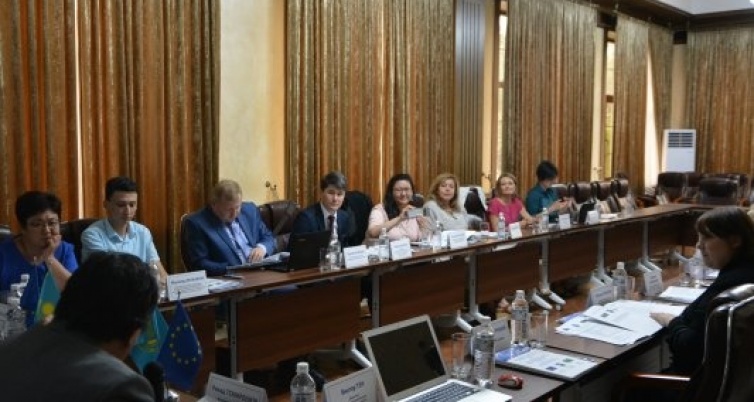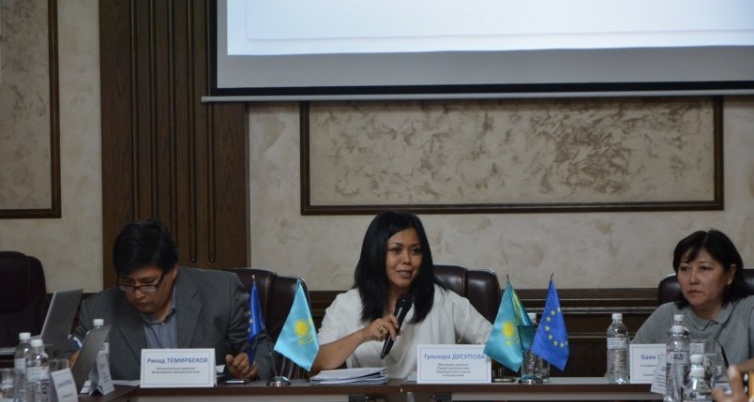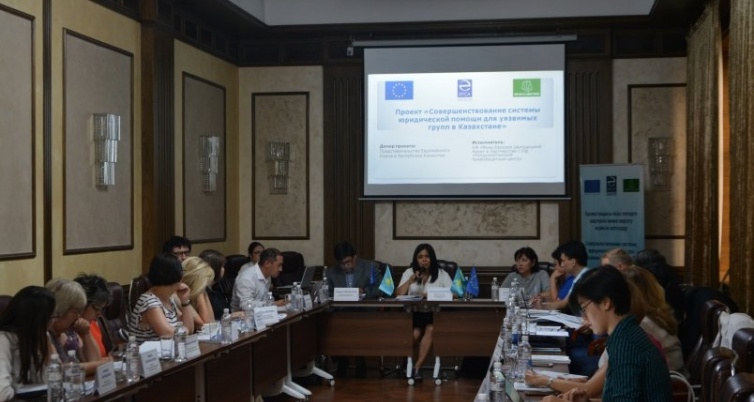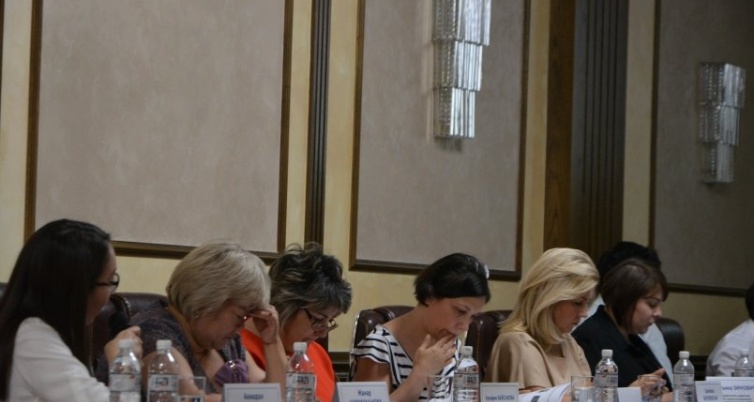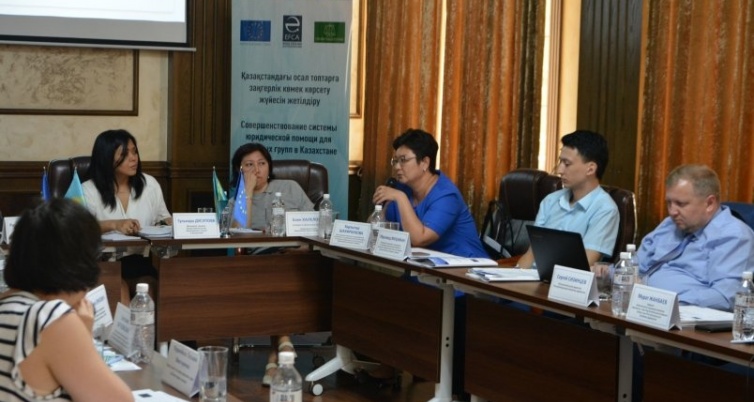Подпишитесь на наши новости:
News
другие News
European Union supports more active role of women and youth in decision-making in Kazakhstan
Qolda emergency assistance project
Qolda emergency assistance project
July 2, 2018
Steering Committee meeting of the EU-funded project "Reforming Legal Aid for the Vulnerable" held in Almaty
On 29 June, 2018themeeting ofSteering Committee of the EU-funded project “Reforming Legal Aid For the Vulnerable in Kazakhstan” implemented by the Eurasia Foundation of Central Asia in partnership with Taldykorgan Human Rights Center was held in Almaty.
Representatives of the Department of Justice of Almaty, representatives of Republican Bar Association, several experts on human rights, EU funded project managers (EUCJ, the Union of the Crisis Centers), and the EU Delegation to Kazakhstan discussed the interim results of the project, the results of the study-tour to Georgia, and the working plan for the following project implementation period, as well as further cooperation prospects between the partner organizations in order to ensure the stability of project's results.
During the reporting period of the project, an advocacy campaign to lobby the proposed recommendations to improve the system of state-guaranteed legal aid was conducted. As part of the advocacy campaign, a seminar with NGO partners, working meetings with key stakeholders, and presentations of the project's recommendations at various venues aimed at protecting human rights, with the participation of government representatives, were held. Further, in June, a study-tour to Georgia to study and analyze international experience in providing legal assistance to vulnerable groups was held. During the meeting, the participants of the study tour presented reports on the results of the visit and analysis of international experience.
"The study-tour to Georgia was very productive; the participants studied not only the model of state-guaranteed legal aid in Georgia, but also the mechanisms of the work of lawyers, as well as their system of income. We visited organizations such as Supreme Court, Bureau of Legal Services, and Bar Association. As a result of the visit, a number of recommendations was developed, all of which are based on the analyzed Georgian experience. They will be used to improve the Kazakhstani model of state-guaranteed legal aid,”- said international expert Dmitry Nurumov.
"I was interested in the Georgian approach to identifying vulnerable population groups. The Ministry of Health there has a special service that determines the vulnerability of the population. First, there are disabled; additional points are then earned based on the level of income, living conditions, and socialization. Various services can access this database. There are three groups of individuals which have access to free assistance under any circumstances: incapable persons, minors, and victims of domestic violence. I think that we also need a new approach in our identification of vulnerable groups,” - added Victor Ten, project partner and director of the Taldykorgan Human Rights Center.
"Here, the Ministry of Justice issues lawyer’s permits, while in Georgia, it is the legal community which issues them. If we could do that in Kazakhstan, we would have many more lawyers," said Murat Zhanbayev, a lawyer and member of the Scientific Advisory Board under the Republican Bar Association.
"In order for the state to fulfill its mission, it is necessary to expand the list of persons entitled to free legal aid, as well as to carefully monitor the funds allocated to legal information, which are included in state guaranteed legal aid," - noticed Tatyana Zinovich project expert and Deputy Director of Legal Policy Research Center (LPRC).




